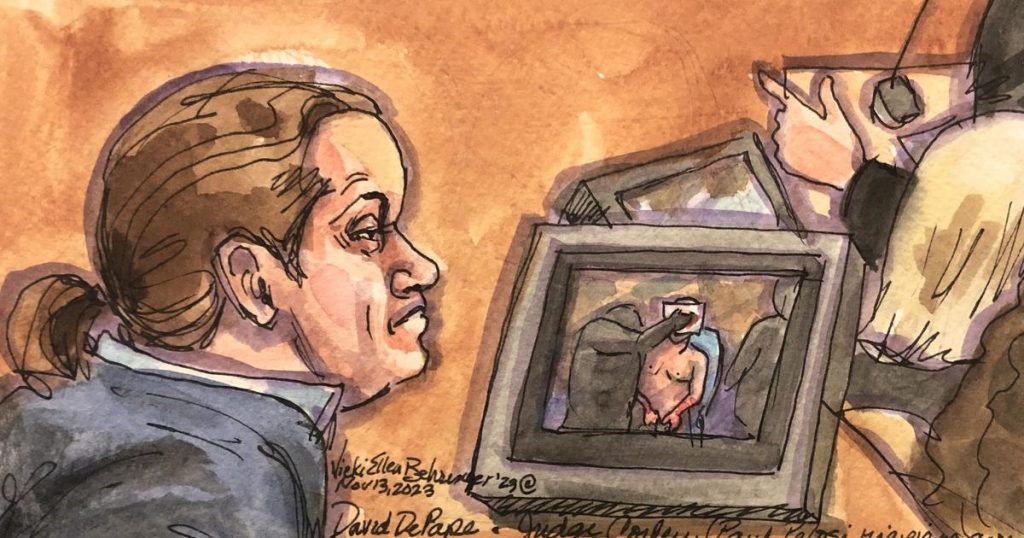David DePape, a man convicted of attempting to kidnap then-House Speaker Nancy Pelosi and attacking her husband with a hammer, is awaiting his sentence in federal court. The incident occurred in October 2022 when DePape broke into the Pelosi home in San Francisco. During his trial, DePape admitted to intending to hold the speaker hostage and attacking her husband with a hammer. Prosecutors have requested a 40-year prison term for DePape, who was convicted on both counts of attempted kidnapping and assault on a federal official’s family member.
DePape’s defense attorneys argued that his actions were motivated by his political beliefs and not an attempt to interfere with the speaker’s official duties. DePape, a Canadian who moved to the U.S. over 20 years ago, claimed that news outlets repeatedly lied about former President Donald Trump, fueling his actions. His plans to target high-profile figures reflected the baseless QAnon conspiracy theory, claiming that a cabal of devil-worshipping pedophiles runs the U.S. government. DePape also mentioned an elaborate plan to record his interrogation of Nancy Pelosi in an inflatable unicorn costume and upload it online.
During the trial, prosecutors presented evidence that DePape had rope and zip ties with him, as well as body cameras, a computer, and a tablet. Paul Pelosi, the speaker’s husband, testified about the attack and how he felt in serious danger when DePape broke into their home. Pelosi suffered head wounds and a skull fracture that required surgery to mend with plates and screws. DePape faces additional charges in state court, including assault with a deadly weapon, elder abuse, residential burglary, and other felonies. Jury selection for the state trial is set to begin on May 22.
The attack on Nancy Pelosi and her husband sent shockwaves through the political world, coming just days before the midterm elections. DePape’s actions and motives have raised concerns about the impact of conspiracy theories and political extremism on individuals and society. The case highlights the dangers of radicalization and the potential for violence fueled by false beliefs and misinformation. The upcoming sentencing and state trial will provide further insight into the motivations behind DePape’s actions and the consequences of his violent attack.
The court proceedings and testimony in DePape’s trials have shed light on the alarming mindset of individuals who are drawn to extremist ideologies and conspiracy theories. The case serves as a reminder of the importance of addressing radicalization and misinformation to prevent future acts of violence. Law enforcement and mental health professionals are working to identify and intervene with individuals who may be susceptible to radicalization and extremist beliefs. The sentencing of DePape and the outcome of his state trial will have implications for addressing political violence and extremism in society. The case underscores the need for a comprehensive approach to combating radicalization and promoting mental health and stability in communities.


